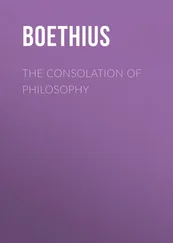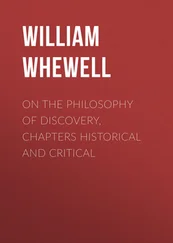“All furze is furze,” unlike many logical truths, is obvious. That does not justify the idea that it imposes no constraint on the world, rather than one which, by logic, we easily know to be met (Wittgenstein, Tractatus Logico-Philosophicus , 4.461–4.4661 and 6.1–613). What case does the constraint exclude? That not all furze is furze, of course. To complain that “Not all furze is furze” does not express a genuine case is to argue in a circle. For it is to assume that a genuine constraint must exclude some logically consistent case. Since substantiality was being understood to consist in imposing a genuine constraint, that is tantamount to assuming that no logical truth is substantial, the very point at issue. Concentration on obvious logical truths obscures this circularity.
We may hope, given an epistemology for logical truths, to extend it to an epistemology for Frege-analytic truths. That task will not be trivial, for cognitive differences may arise between synonymous expressions, even for those who understand them. For example, Kripke (1979) has argued persuasively that a competent speaker of English can understand the synonymous expressions “furze” and “gorse” in the normal way without being in a position to know that they refer to the same thing. Such a speaker will assent to the logical truth “All furze is furze” while refusing assent to the Frege-analytic truth “All furze is gorse.” Similarly, on standard theories of direct reference, coreferential proper names such as “Hesperus” and “Phosphorus” are synonymous, so an astronomically ignorant competent speaker may assent to the logical truth “If Hesperus is bright then Hesperus is bright” while refusing assent to the Frege-analytic truth “If Hesperus is bright then Phosphorus is bright.”
The epistemological consequences of such examples are contested. According to some direct reference theorists, the proposition that if Hesperus is bright then Phosphorus is bright is the proposition that if Hesperus is bright then Hesperus is bright, so whoever knows that if Hesperus is bright then Hesperus is bright ipso facto knows that if Hesperus is bright then Phosphorus is bright. 18However, even granted that view of propositional attitude ascriptions, that speaker is in no position to know that if Hesperus is bright then Phosphorus is bright under the guise of the sentence “If Hesperus is bright then Phosphorus is bright,” but only under the guise of the sentence “If Hesperus is bright then Hesperus is bright.” In a sense the speaker cannot express their knowledge by using the merely Frege-analytic sentence, even though it expresses the content of that knowledge: if they do use the sentence, their utterance will not be causally connected to their knowledge state in the right way. In elliptical terms, the speaker knows “If Hesperus is bright then Hesperus is bright” without being in a position to know “If Hesperus is bright then Phosphorus is bright”; they know the logically true sentence without being in a position to know the merely Frege-analytically true sentence.
If propositions are individuated in that coarse-grained direct reference way, what matters for progress in philosophy is less which propositions we know than which sentential guises we know them under. Suppose, just for the sake of argument, that some form of physicalism is true, and pain is in fact identical with π, where “π” is a name whose reference is fixed by a neuroscientific description. According to a hard-line direct reference theory, “pain” and “π” are synonymous. The hypothesis “Pain is π” becomes a focus of philosophical controversy. On some direct reference theories, everyone knew all along that pain is π, because they knew all along that pain is pain and the proposition that pain is π just is the proposition that pain is pain. If that view is correct, it just shows that such attitude ascriptions constitute the wrong level of description for understanding philosophical activity. What matters is that although everyone knew the proposition under the guise of the logical truth “Pain is pain,” they did not know or even believe it under the guise of the merely Frege-analytic truth “Pain is π.” In elliptical terms, they knew “Pain is pain” but not “Pain is π.” Perhaps such physicalist theories are false, but we can hardly expect philosophy to be a discipline in which there are no informative identities; the moral of the example stands. The need for such finer-grained descriptions of propositional attitudes is even more urgent if propositions as the objects of knowledge and belief are identified with sets of possible worlds, for then all necessary truths are identical with the set of all possible worlds: anyone who knows one necessary truth knows them all (Lewis 1996, Stalnaker 1999: 241–73). Thus a coarse-grained account of attitude ascriptions does not trivialize the problem of extending an epistemology for logical truths to an epistemology for Frege-analytic truths.
Opponents of direct reference theories usually hope to make synonymy a more cognitively accessible relation for competent speakers. However, the prospects for making it perfectly accessible are very dubious. Pairs such as “furze” and “gorse” are pre-theoretically plausible cases of synonymous expressions that speakers can understand in the ordinary way without being in a position to know them to be synonymous. 19The extension of an epistemology for logical truths to an epistemology for Frege-analytic truths will probably have to allow for significant cognitive obstacles that cannot be overcome simply by speakers” ordinary linguistic competence.
Even for sentential guises, identity and distinctness are not guaranteed to be transparent to speakers: someone may be confused as to whether “Paderewski,” the name of the politician, is the same name as “Paderewski,” the name of the pianist (Kripke 1979). A single speaker at a single time may associate different mental files with the same word of a natural language, or the same mental file with different words of the language. Speakers may also be confused as to whether they are calling on two mental files or one. What needs to be found is not the mythical level of description at which perfect transparency to the subject is guaranteed but rather a perspicuous level of description at which the relevant cognitive phenomena are individuated in a way that is neither so coarse-grained that the most relevant distinctions cannot be drawn nor so fine-grained that they are drowned out by a crowd of irrelevant ones. Since philosophical debates involve many interacting individuals, sentential guises usually provide an appropriate level of description.
We also need an epistemology for logical truths in the first place. To that, the notion of Frege-analyticity contributes nothing. In particular, that a sentence is Frege-analytic does not imply that mere linguistic competence provides any insight into its truth, or constitutes more than the minimal starting-point for inquiry it does for ordinary synthetic truths.
How many philosophical truths are Frege-analytic? As a simple example, take the true sentence “Persons are not events” (if you think that persons are events, take “Persons are events” instead). It is not itself a logical truth, on any standard conception of logic. In particular, “person” and “event” seem not to be logical constants, and the logical form “ P s are not E s” has false instances such as “Parisians are not Europeans.” What logical truth could “Persons are not events” be synonymous with? “Persons who are not events are not events” is a logical truth, but not synonymous with the original. Granted, “persons” and “persons who are not events” have the same intension (function from circumstances of evaluation to extension) in every context of utterance. 20Still, they are not literally synonymous, for whatever the semantic structure of “persons,” it is finite, and therefore a proper part of the semantic structure of “persons who are not events”; thus the two expressions differ in semantic structure. One can try to construct non-circular analyses of “person” and “event” or both whose substitution into the sentence would yield a logical truth: “To be a person is to be a QRS .” However, “person” and “ QRS ” are unlikely to be literally synonymous. Almost certainly, someone will produce a purported counterexample to the analysis: “Such-and-such would be a person but not a QRS ” or “So-and-so would be a QRS but not a person.” Direct reference theorists will tend to expect just such counterexamples to the claim that the apparently simple term “person” and the complex description “ QRS ” have the same intension; direct reference theories partly originate from Kripke and Putnam’s counterexamples to a host of similar descriptivist claims. Opponents of direct reference may be less pessimistic about the prospects for a complex description with the same intension as “person.” However, on their finer-grained views of meaning, on which synonymy is as transparent as possible to competent speakers, a purported counterexample need not be correct to defeat the claim of synonymy: what counts is that its proponent is neither linguistically incompetent nor fundamentally irrational. Contemporary proponents of a descriptivist view of meaning as a rival to direct reference theory usually envisage a loose semantic connection with a cluster of descriptions rather than strict synonymy with a single description. Whichever side of the debate one takes, there are good grounds for skepticism about the supposed synonymy of “person” and “ QRS .” The best bet is that “Persons are not events” is not Frege-analytic. The point does not depend on peculiarities of the example; it could be made just as well for most other philosophical claims. 21In contemporary philosophy, few who propose complex analyses claim synonymy for them. 22
Читать дальше












